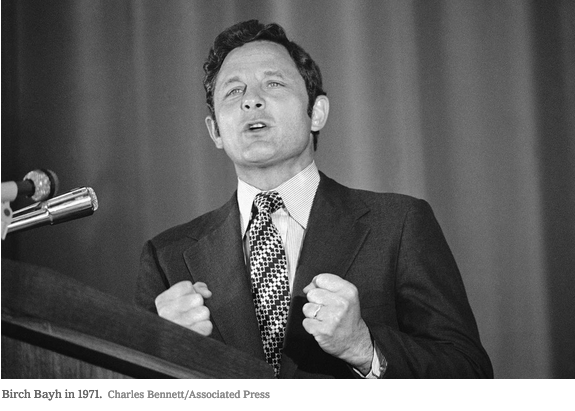By Jesse Wegman
Mr. Wegman is a member of the editorial board. His book, “Let the People Pick the President,” will be published early next year.
Changing the United States Constitution is like winning an extremely long, slow-motion lottery.
Since 1788, when the nation’s charter was ratified, more than 11,000 amendments have been proposed. Twenty-seven have succeeded.
The odds of any one person writing an amendment that clears all the required hurdles — a two-thirds vote in both houses of Congress followed by ratification in three-quarters of the states — are minuscule. Doing it more than once is a virtual impossibility.
In American history, two people have that distinction.
One is James Madison, the founding father who did more than perhaps any other to shape the Constitution itself, and then almost immediately afterward drafted and pushed through the first 10 amendments, also known as the Bill of Rights.
The other is Birch Bayh, the former three-term Democratic senator from Indiana who died early on Thursday at 91.
Mr. Bayh was still in his first term when, in the mid-1960s, he became a one-man constitutional reform machine. In the wake of President John Kennedy’s assassination, Mr. Bayh drafted and steered through Congress the 25th Amendment, which set out rules for the temporary replacement of a president or vice president who dies, resigns or becomes unable to govern. A few years later he did the same for the 26th Amendment, which lowered the voting age to 18.
He may yet get credit for a third: the Equal Rights Amendment, which would prohibit discrimination on the basis of sex. After Representative Martha Griffiths, a Michigan Democrat, pushed the E.R.A. through the House, Mr. Bayh sponsored it in the Senate, where it passed in 1972. It has slowly been racking up ratifications ever since. Thirty-seven states have approved it, one shy of the required 38.
But the amendment that would have had the biggest impact of all was the one he could not get passed.
Between 1966 and 1970, Senator Bayh led a vigorous national campaign to abolish the Electoral College and elect the president by a direct popular vote.




